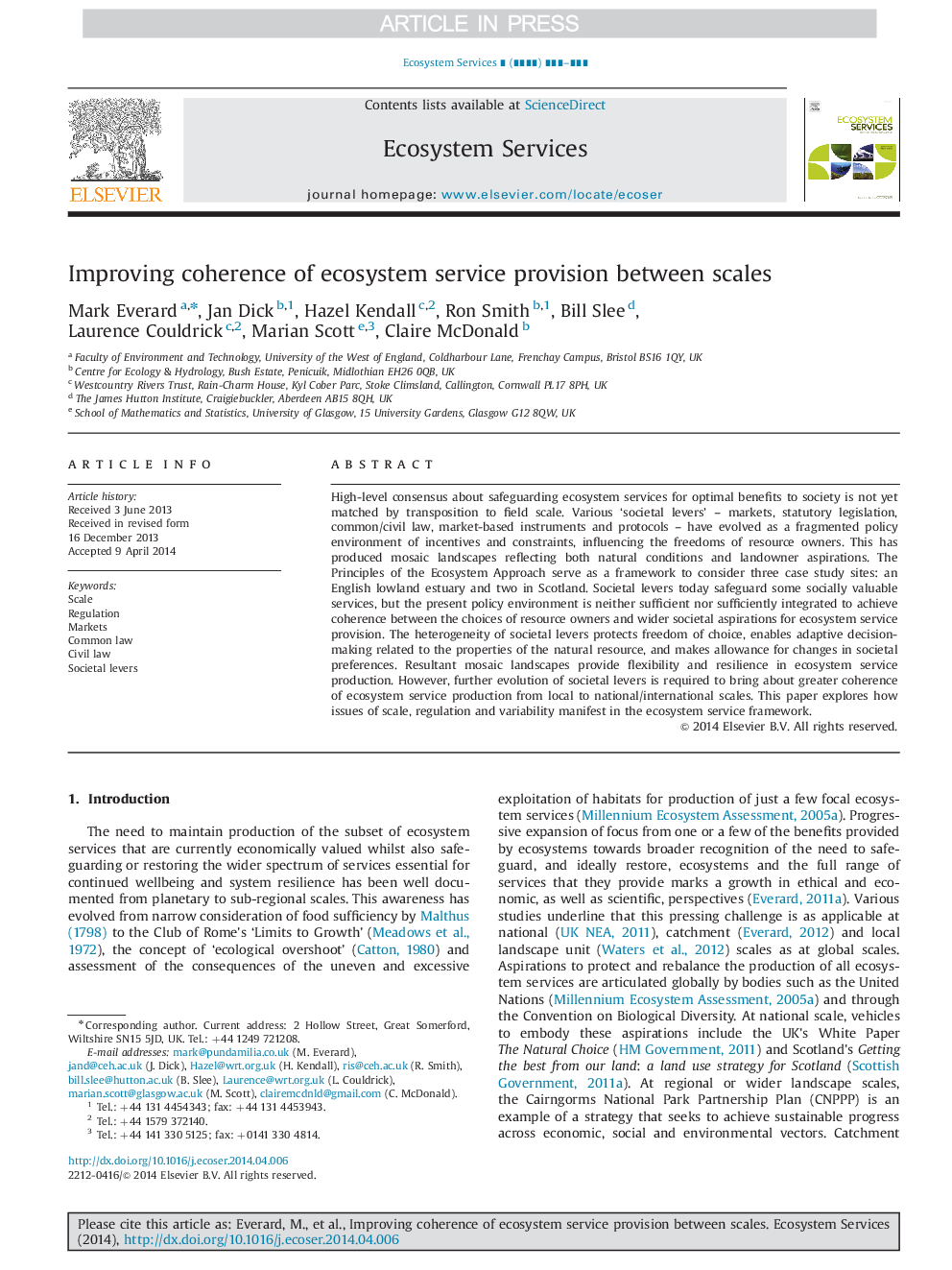| Article ID | Journal | Published Year | Pages | File Type |
|---|---|---|---|---|
| 6556884 | Ecosystem Services | 2014 | 9 Pages |
Abstract
High-level consensus about safeguarding ecosystem services for optimal benefits to society is not yet matched by transposition to field scale. Various 'societal levers' - markets, statutory legislation, common/civil law, market-based instruments and protocols - have evolved as a fragmented policy environment of incentives and constraints, influencing the freedoms of resource owners. This has produced mosaic landscapes reflecting both natural conditions and landowner aspirations. The Principles of the Ecosystem Approach serve as a framework to consider three case study sites: an English lowland estuary and two in Scotland. Societal levers today safeguard some socially valuable services, but the present policy environment is neither sufficient nor sufficiently integrated to achieve coherence between the choices of resource owners and wider societal aspirations for ecosystem service provision. The heterogeneity of societal levers protects freedom of choice, enables adaptive decision-making related to the properties of the natural resource, and makes allowance for changes in societal preferences. Resultant mosaic landscapes provide flexibility and resilience in ecosystem service production. However, further evolution of societal levers is required to bring about greater coherence of ecosystem service production from local to national/international scales. This paper explores how issues of scale, regulation and variability manifest in the ecosystem service framework.
Related Topics
Life Sciences
Agricultural and Biological Sciences
Agricultural and Biological Sciences (General)
Authors
Mark Everard, Jan Dick, Hazel Kendall, Ron Smith, Bill Slee, Laurence Couldrick, Marian Scott, Claire McDonald,
